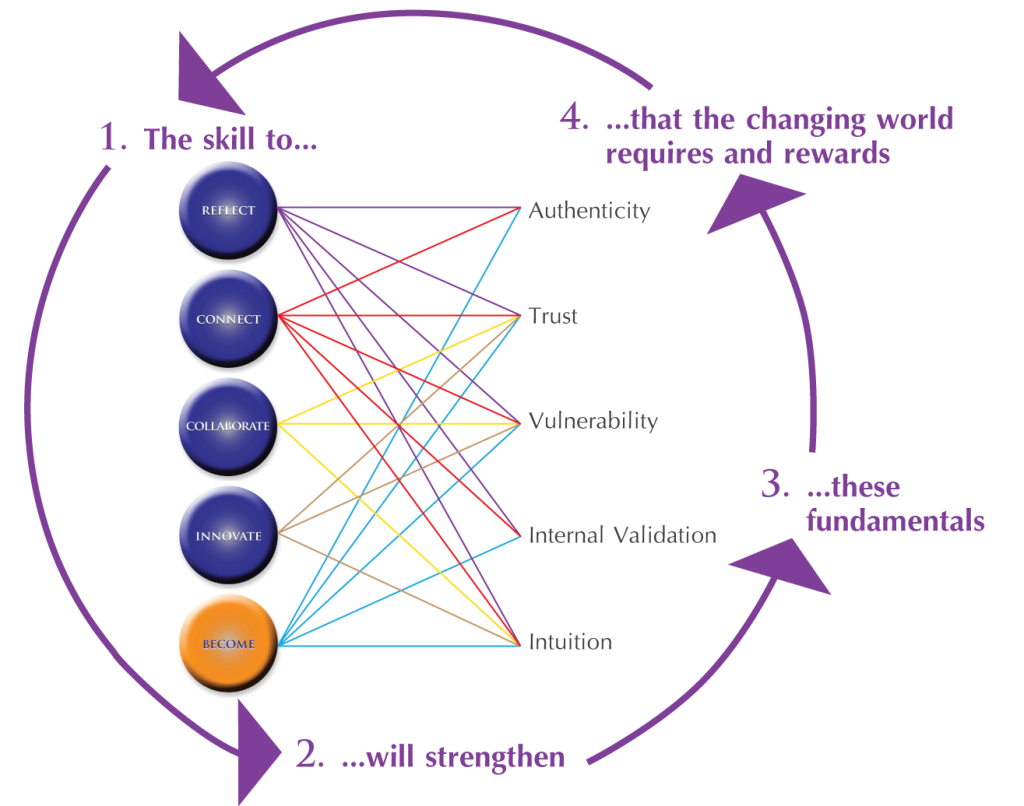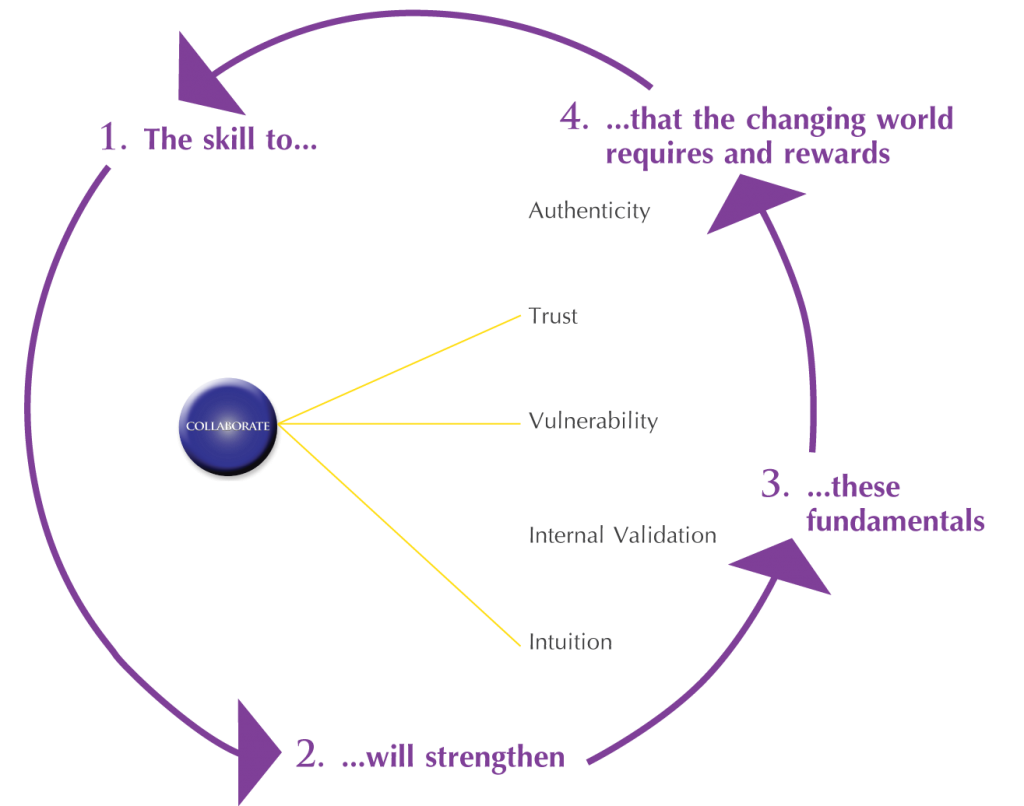how to collaborate in the changing corporate world
Why wont my people collaborate in the organisation?
There are so many variables for a question like this. Here’s some of the common considerations. Our people are a mirror image of ourselves. Could they see a lack of collaboration or limited openness within our own style? They’ve collaborated before yet it turned into a black and white scenario (right or wrong). The environment is one that forces collaboration where no natural connection lies. A lack of balance exists in the collaboration itself. The collaborators themselves may not be connected individuals and hence fear will hold back the openness. In summary, to answer, firstly look at your own self leadership, secondly the environment and its history and thirdly the individuals who are to collaborate.
What can I introduce into the workplace that will serve a collaborative effort?
This question may have solutions embedded into Q1. Alternatively, to collaborate may require change fundamentals. Any change requires awareness before a willingness to be involved. Is the reason for the need to collaborate clear? Are the consequences of not collaborating understood? In other words, changing to collaborate will occur when it’s more painful to not do so. Is there a consistent need for the collaboration?
Why is collaboration dependent on reflection and connection according to the embers model?
Collaboration builds trust with others over time, and just like you cant lead others without leading yourself, you cant trust others without trusting yourself. Self-trust is a bi-product of the first phase of the embers model – reflect and connect. Collaboration also needs to feel right, and when connected, our inner guidance will know the best parties and the best times to collaborate with and sometimes more importantly who and when are not…
Is it possible for collaboration and change to occur together in harmony in business?
A real need should drive any change, otherwise it becomes change for change sake – under those circumstances the new outcome will not sustain. One type of need may be an external factor that a leader must react to (not the preferred, yet it can be reality, eg changing laws for business to react to). Another type of need may also be a desired state that may become a corporate differentiator or success factor, so it is an intended and to date an unknown state. In business, nothing can work in isolation, even a vision, as others must buy in for it to be effective. Authorities, industry support groups, stakeholders, customers, staff all are potential collaborators. The harmony exists when we all collaborate to ensure the desired change sustains – commitment prior during and after the change! Yes, not only is it possible but vital for collaboration and change to occur together!
Wont collaboration slow things down?
What are your priorities – time or purpose, results or alignment, completion or evolution? If collaboration is not a corporate culture element right now, yes it will slow things down to introduce this basic fundamental – make your choice! Can businesses exist without priority and commitment?
How do you consider collaboration – a disconnected activity or a strategic enabler?
How can I maximize cross-functionality hybrid teams?
Collaboration is at the heart of any cross-functionality, and requires a commitment to shared results. Build an environment that facilitates opportunity for collaboration at every touchpoint.
Touch points can be mapped out for all stakeholders. For a cross-functional hybrid team, identify where dependencies lie and at each dependency, design a tool, a mechanism or an experience that has collaboration at its core. For example, introduce shared reporting that follows the timeline of production, build communication channels that are socially constructive models, and perhaps introduce shared rewards and not departmental-focussed rewards.
What other questions do YOU have about collaboration in business and corporate leadership?
What other questions do YOU have about collaboration in business and corporate leadership?
Collaboration is the third stage of the embers change model. Collaborating is a skill that the changing corporate world rewards. This is because it reinforces fundamental behaviours that are serving responsibly, and serving not only the people and the organisation, but also the community. Business can now be at the core of society and has huge opportunity to create and positively impact the future.
One example of business with credible evidence that is impacting positively whilst creating the future includes:
- Whole Foods Market lead by the evolved leader Mr John Mackey
Let us know when you see or hear of more great examples!















